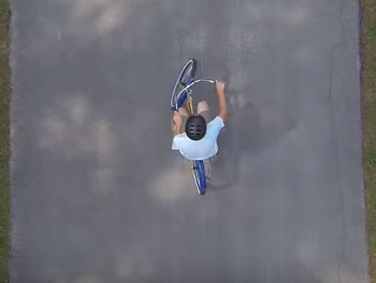
Backwards Brain Bicycle
This video is about a bicycle that works differently than normal bicycles, and how challenging it is for our minds to learn how to ride this new bicycle.
In this lesson students sort their own experience of thinking into fast and slow processes. Based on this, they come to understand that our thinking is shaped through experience such that things we do often and regularly become easier over time.
Psychologists, including the behavioral scientist and economist Daniel Kahneman, have introduced the concept of two different ways of thinking or processes in our brains – a fast, automatic, involuntary, and unconscious mode of thinking, and a slow, voluntary, and conscious mode of thinking. These two ways of thinking are simply called “System 1” and “System 2”. Other metaphors and analogies are also used to illustrate these different ways of thinking which are introduced in this lesson. They are not actually “organs” in our brain, and they are not in particular separate places in the brain. Rather, they more or less connect the nerve cells in different brain regions. System 2, for example, occurs to a large part in the cerebral cortex. The two different ways of thinking have evolved throughout evolutionary history. System 1 is very old and we have it in common with other animals. System 2 is younger and became especially elaborated in the course of human evolutionary history. System 2 also develops during our individual development.
Author: Susan Hanisch

This video is about a bicycle that works differently than normal bicycles, and how challenging it is for our minds to learn how to ride this new bicycle.

In this lesson students learn about the concept of cognitive biases as well as a number of important cognitive biases that may affect our well-being and social interactions, identify their causes in evolutionary history, their functions, and reflect on how to cope with cognitive biases.
OpenEvo is an educational innovation project from the Department of Comparative Cultural Psychology at the Max Planck Institute for Evolutionary Anthropology.
Evolve the future of education with us!